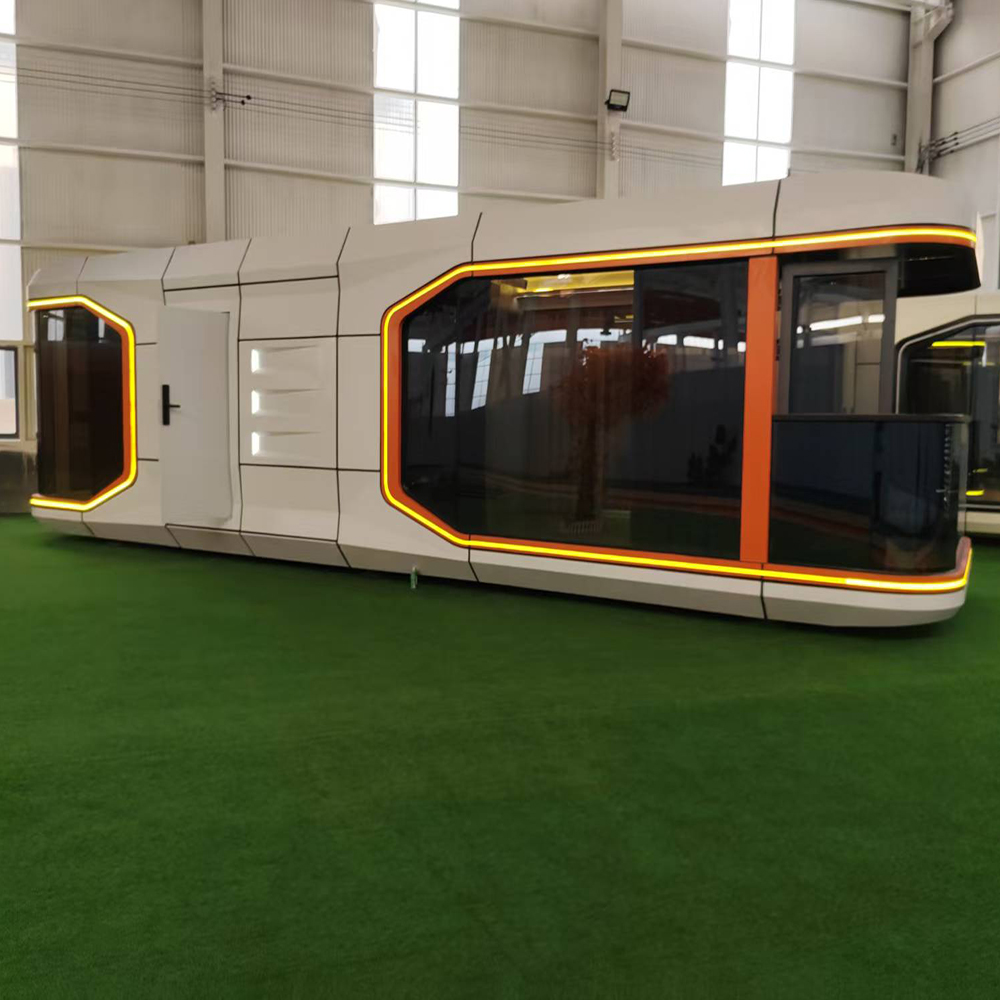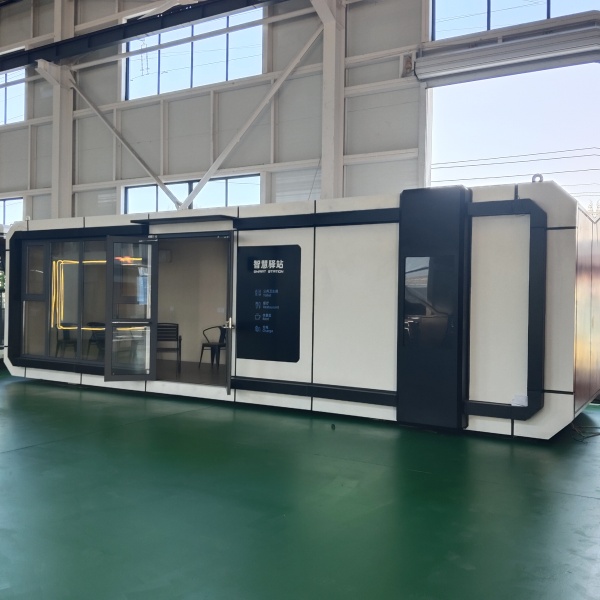-
E-mail
Austin120521@outlook.com -
E-mail
sales@jujiuhouse.com -
Telephone
+86-17864099991 -
Telephone
+86-17854044442
- Chinese
- French
- German
- Portuguese
- Spanish
- Russian
- Japanese
- Korean
- Arabic
- Irish
- Greek
- Turkish
- Italian
- Danish
- Romanian
- Indonesian
- Czech
- Afrikaans
- Swedish
- Polish
- Basque
- Catalan
- Esperanto
- Hindi
- Lao
- Albanian
- Amharic
- Armenian
- Azerbaijani
- Belarusian
- Bengali
- Bosnian
- Bulgarian
- Cebuano
- Chichewa
- Corsican
- Croatian
- Dutch
- Estonian
- Filipino
- Finnish
- Frisian
- Galician
- Georgian
- Gujarati
- Haitian
- Hausa
- Hawaiian
- Hebrew
- Hmong
- Hungarian
- Icelandic
- Igbo
- Javanese
- Kannada
- Kazakh
- Khmer
- Kurdish
- Kyrgyz
- Latin
- Latvian
- Lithuanian
- Luxembou..
- Macedonian
- Malagasy
- Malay
- Malayalam
- Maltese
- Maori
- Marathi
- Mongolian
- Burmese
- Nepali
- Norwegian
- Pashto
- Persian
- Punjabi
- Serbian
- Sesotho
- Sinhala
- Slovak
- Slovenian
- Somali
- Samoan
- Scots Gaelic
- Shona
- Sindhi
- Sundanese
- Swahili
- Tajik
- Tamil
- Telugu
- Thai
- Ukrainian
- Urdu
- Uzbek
- Vietnamese
- Welsh
- Xhosa
- Yiddish
- Yoruba
- Zulu
- Kinyarwanda
- Tatar
- Oriya
- Turkmen
- Uyghur

China tiny folding house
Unfolding the Potential of China's Tiny Folding Houses
In recent years, the concept of the tiny folding house in China has caught my attention. It's not just a product, but more of a movement. This trend aligns perfectly with the country's rapid urbanization and increasing emphasis on sustainable living. But, the journey hasn't been without its challenges and learning curves, which I've seen first-hand.
Understanding the Basics
At first glance, these compact dwellings may seem like a novelty. However, their popularity is rooted in practical needs. Urban areas are congested, property prices are high, and there's a growing demand for flexibility. Tiny folding houses offer a solution, promising affordability, accessibility, and an innovative approach to living space.
One common misconception is that these homes are merely temporary or low-quality. In reality, companies like SHANDONG JUJIU INTEGRATED HOUSING CO, LTD are redefining the standards. They integrate research, design, and production into a seamless process, ensuring that these houses are both robust and stylish. More about them can be found on their website, jujiuhouse.com.
From my experience in the field, I've seen how these homes are not just about living smaller but living smarter. The design optimizations, facilitated by companies like Jujiu, exemplify how technology and creativity drive this industry forward.
The Design Process
Creating a tiny folding house is quite the puzzle. It starts with meticulous planning and a deep understanding of space utilization. Unlike traditional buildings, every square inch matters. Shandong Jujiu's approach involves integrating steel structures with flexible layouts, ensuring durability without sacrificing style.
I've observed designers wrestling with numerous drafts before hitting the sweet spot—balancing aesthetics with functionality. For instance, finding the right materials that are both lightweight and strong enough to withstand different weather conditions is crucial.
Additionally, there's a focus on efficiency in production. Streamlined processes ensure that these homes are affordable without compromising on quality. The key is harmonizing mass production with bespoke customization—something Jujiu has been excelling at.
Challenges and Innovations
No innovation is without its hurdles. When dealing with tiny folding houses, logistics can be a nightmare. Transporting components to remote locations or urban centers requires precise coordination and expertise. In my early days, I've had instances where delays caused budget overruns and frustrated clients. Lessons learned the hard way.
However, these challenges have spurred new technologies. For example, modular construction techniques and improved transportation solutions have significantly reduced delivery times. I've watched the industry evolve, embracing sustainability and efficiency at each step.
It's exciting to witness companies actively working on reducing carbon footprints through their projects. Shandong Jujiu, for instance, invests in sustainable materials and eco-friendly production processes, making an impact beyond just providing housing solutions.
Market Potential and Acceptance
The market for tiny folding houses in China is burgeoning. It's not just about individual buyers anymore. I've seen governments and enterprises show interest, recognizing the potential to address housing shortages and promote sustainable development.
Acceptance has grown considerably over the past few years, as more people recognize the advantages of these homes. They offer an alternative lifestyle that's not just trendy but practical, especially in dense urban environments where space is a luxury.
Even in smaller towns, demand is rising. People seek simplicity and lower living costs, which these houses offer. Companies like Jujiu are expanding their reach, tapping into diverse markets and needs.
The Future Outlook
Looking ahead, the trajectory for tiny folding houses in China seems promising. With continuous technological advancements and a growing emphasis on eco-friendly living, the potential is vast. I foresee more innovations, especially in energy efficiency and smart home integrations.
Customization will become a key selling point. As people look to personalize their spaces, the ability to adapt designs to individual preferences will be invaluable. It's an exciting time to be involved in this industry, with companies like SHANDONG JUJIU leading the charge.
Ultimately, tiny folding houses are more than just structures—they represent a shift in how we think about living spaces. As I've seen in my experience, they embody a blend of practicality, innovation, and a desire for a lighter environmental footprint. And that, in my opinion, is a very promising development for the future.
Related products
Related products
Best selling products
Best selling products-
 Customized Two Wing Folding Expandable Container House
Customized Two Wing Folding Expandable Container House -
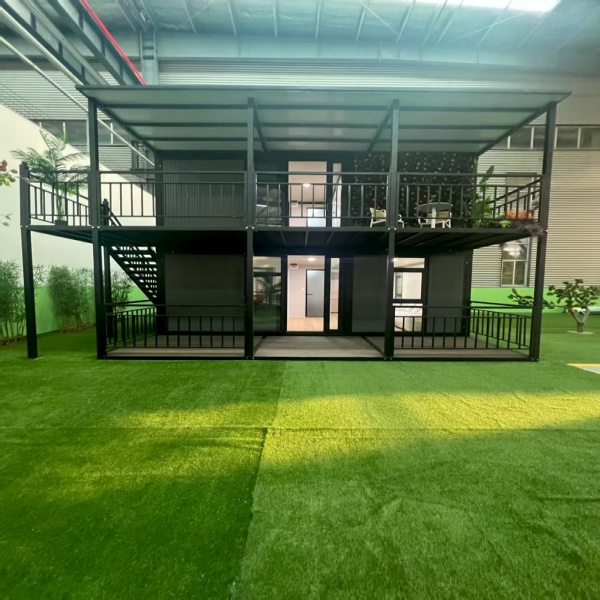 Luxury foldable two-story container houses in luxury resort hotels and villa hotels
Luxury foldable two-story container houses in luxury resort hotels and villa hotels -
 A container house with a terrace and double-wing folding design, suitable for various purposes such as offices, meeting rooms, living rooms, etc.
A container house with a terrace and double-wing folding design, suitable for various purposes such as offices, meeting rooms, living rooms, etc. -
 Movable Prefabricated Container House Villas Modular Portable Homes 1 Bedroom Container House Offices Apartments
Movable Prefabricated Container House Villas Modular Portable Homes 1 Bedroom Container House Offices Apartments -
 Detachable Design Prefabricated Container House Portable Modular Office Building Folding Container House
Detachable Design Prefabricated Container House Portable Modular Office Building Folding Container House -
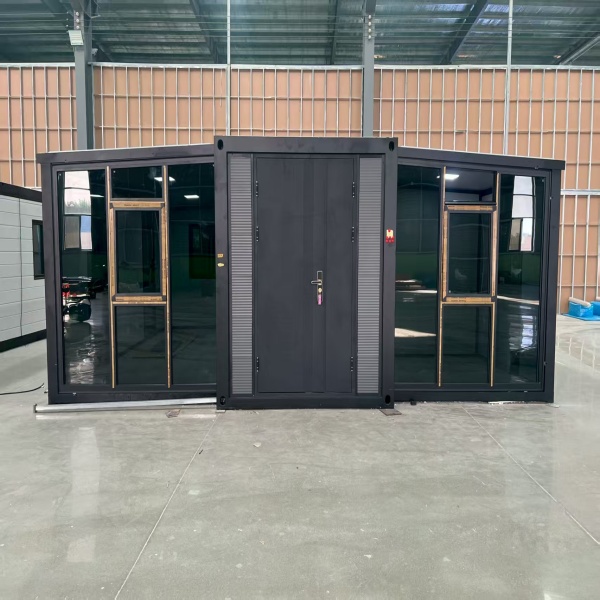 Customizable Office Mobile Home with Flat Roof and Double Wing Expansion Box, Convenient Container
Customizable Office Mobile Home with Flat Roof and Double Wing Expansion Box, Convenient Container -
 A container house with a terrace and double-wing folding design, suitable for various purposes such as offices, meeting rooms, living rooms, etc.
A container house with a terrace and double-wing folding design, suitable for various purposes such as offices, meeting rooms, living rooms, etc. -
 Easy Install Customized Detachable Container Homes Extendable House Prefab 2 Floors Expandable Container House
Easy Install Customized Detachable Container Homes Extendable House Prefab 2 Floors Expandable Container House -
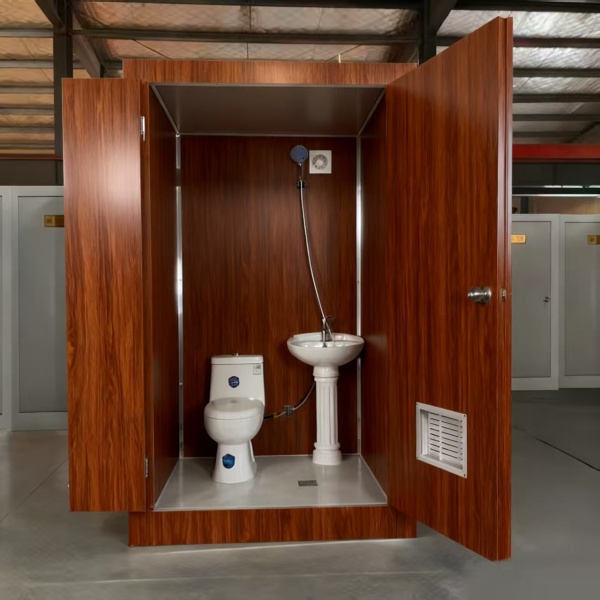 Portable outdoor camping bathroom, mobile toilet, prefabricated modular villa & rental of outdoor and indoor showers
Portable outdoor camping bathroom, mobile toilet, prefabricated modular villa & rental of outdoor and indoor showers -
 High-quality Double-wing Folding Container House with Doors and Windows, Insulated Walls, Suitable for Various Scenarios.
High-quality Double-wing Folding Container House with Doors and Windows, Insulated Walls, Suitable for Various Scenarios. -
 Dual-Wing Folding Container House: Fast Assembly, Space-Saving & Multi-Scene Adaptable
Dual-Wing Folding Container House: Fast Assembly, Space-Saving & Multi-Scene Adaptable -
 Good Quality Modular Homes Prefabricated House Expandable Container House 20FT Mobile Flat Roof House
Good Quality Modular Homes Prefabricated House Expandable Container House 20FT Mobile Flat Roof House
Related search
Related search- expandable folding house
- fold out houses for sale
- apple valley road cabins
- new spire prefabricated house container house
- Buy movable space capsule homes
- Buy folding prefabricated house
- Buy supplier foldable house container expandable
- China fold out homes from shipping containers
- China homes that fold out
- apple cabin 40ft capsule









